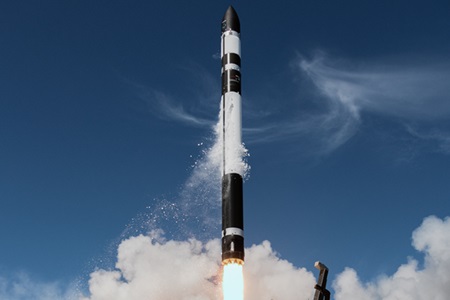
Rocket Lab has launched its 53rd Electron mission and deployed five satellites to Low Earth Orbit for French Internet-of-Things (IoT) company Kinéis.
The ‘Kinéis Killed the RadIOT Star’ lifted off from Rocket Lab Launch Complex 1 in Mahia, New Zealand, on September 21 NZST (23:01, 20 September UTC), successfully deploying five satellites to a 643 km orbit. The mission was the second of five dedicated Electron launches for Kinéis, a company backed by private and public investors including the French government’s space agency CNES (Centre National d’Études Spatiales) and CLS (Collecte Localisation Satellites), an international space-based solutions provider, to improve global IoT connectivity. The Kinéis constellation is designed to make it possible to connect and locate any connected object anywhere in the world, enabling data transmission to users in near-real time, at low bit rates and with very low energy consumption. By enabling internet connection to the Earth’s most remote locations, Kinéis constellation can support forest fire detection, water resource management, infrastructure and energy network monitoring, transport and logistics tracking, and much more.
Sir Peter Beck, Founder and CEO of Rocket Lab, said: “Today’s successful launch marks another milestone for Rocket Lab as we continue to enable innovative companies like Kinéis to push the boundaries of global IoT connectivity. With each mission, we are bringing the world closer together, allowing vital data to be transmitted from the remotest corners of the Earth.”
Across 53 launches Rocket Lab has now deployed 197 satellites for a diverse range of customers and missions, including NASA missions to the Moon, the National Reconnaissance Office and Space Force missions supporting national security and defence, scientific research to combat climate change, and commercial constellations providing vital data and services to millions of people on Earth.












Add Comment